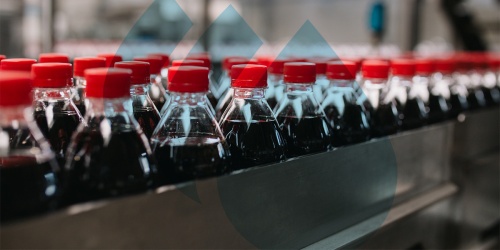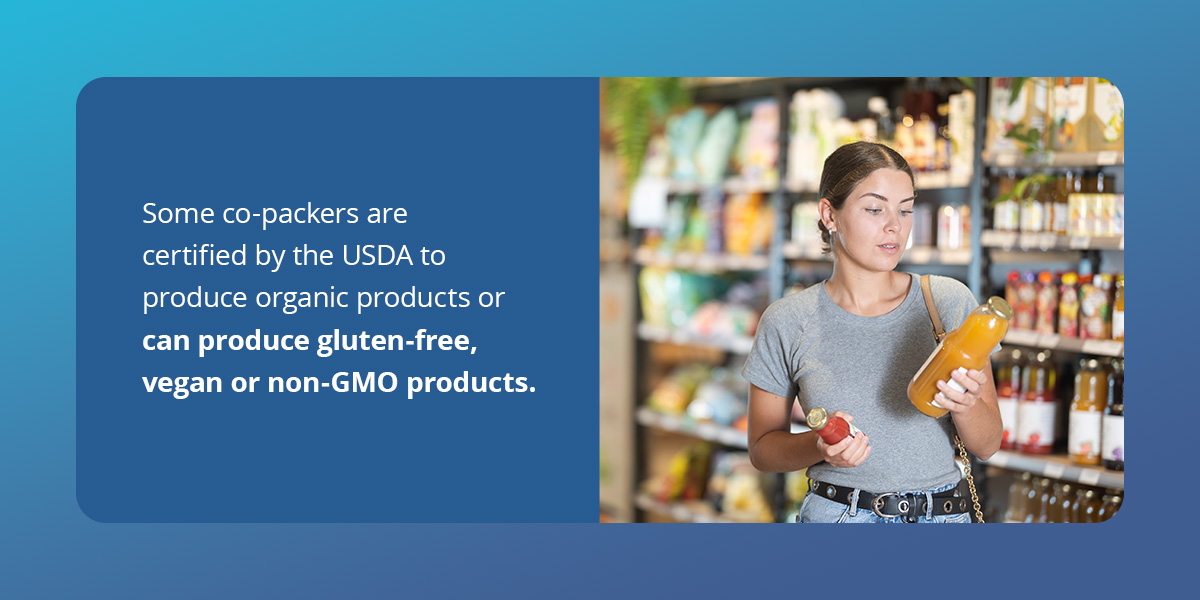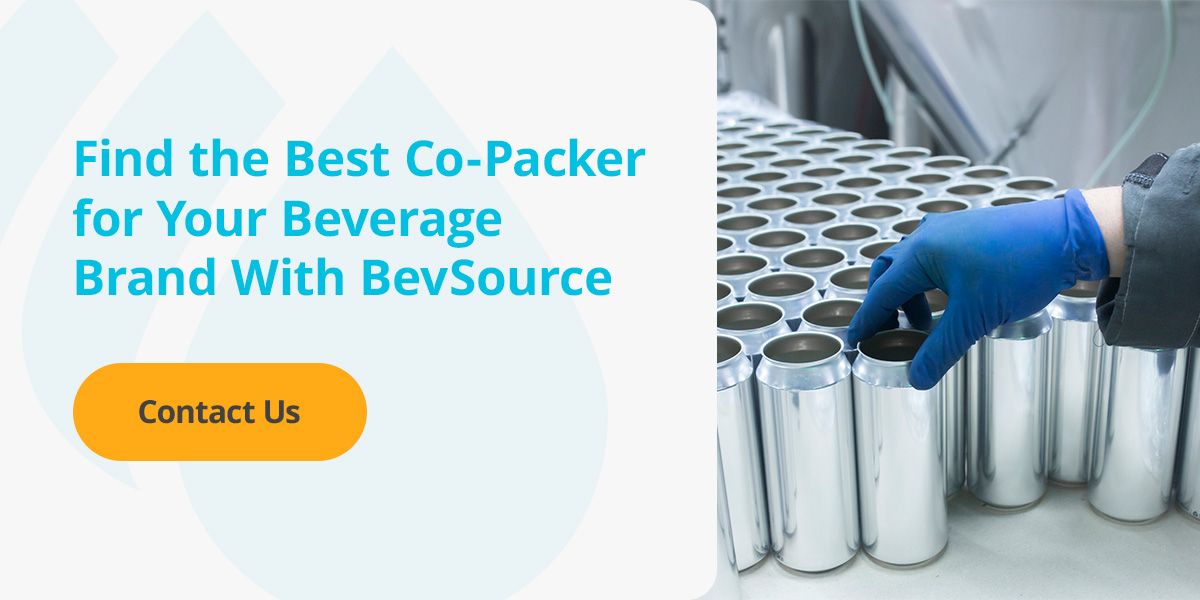Choosing the Right Beverage Co-Packer: Factors to Consider for a Successful Partnership

Whether you're interested in entering a new category or searching for the right expertise and connections, beverage co-packing companies can simplify the process. Beverage co-packers, sometimes called contract manufacturers or contract packers, specialize in handling many aspects of beverage production, including manufacturing and packaging.
While many breweries and distilleries can handle their own manufacturing processes and may offer co-packing services, many beverage brands must rely on a co-packer with the expertise and equipment to produce beverages.
However, not all co-packers are equal. If you want to launch a new product or scale your beverage production, finding a co-packer with the right capabilities who can grow with you as your business grows is essential. Here are some top considerations for finding a beverage co-packer that fits your production needs and timeline.
Why Co-Packers Are Essential in the Beverage Industry
Co-packing eliminates the need for beverage brands to invest in manufacturing infrastructure, equipment and facilities. This results in significant cost savings as brands can avoid capital expenditures and operational overhead assets. Co-packers, therefore, provide a cost-effective and efficient way for beverage companies to produce and package their products.
Beverage co-packing companies take on many roles in your supply chain, including producing your recipe and packaging your beverage. Co-packers maintain specialized facilities to produce your beverage according to your exact requirements. They have the necessary infrastructure, expertise and technology to act as an extension of your beverage business. Co-packers handle the intricate, labor-intensive manufacturing process so you can prioritize other high-value needs.
In addition to manufacturing, some co-packers deliver a range of other services, including:
- Design and packaging
- Shipping
- Short-term dry and refrigerated storage
- Labeling
- Logistics
- Sourcing ingredients
- Palletization
- Quality control
- Warehousing
Top Considerations for Choosing the Best Beverage Co-Packer for Your Brand
Before selecting a beverage co-packer, you need to know what to look for and avoid. The co-packer you choose can directly affect your brand's reputation, quality and efficiency. Here are some factors to consider.
1. Experience and Capabilities

Co-packers can work with a wide variety of beverage types, but their capabilities depend on their expertise and equipment, which may not align with your beverage’s specific needs. These factors range from the processing method required for your beverage type to their ability to run your desired packaging format.
Beverage manufacturers also vary in their production capacity. Smaller co-packers often specialize in smaller production runs and can be ideal for startups and emerging brands. They offer flexibility and can accommodate smaller batch sizes, while larger co-packers are better suited for established brands with higher production volumes. They can handle large-scale production runs and offer economies of scale.
When selecting a co-packer, you need to thoroughly evaluate their capabilities to ensure alignment with your product goals. This includes confirming that the co-packer can handle your specific type of beverage, whether it’s carbonated, non-carbonated, alcoholic, dairy-based or a shelf-stable option requiring hot or cold fill processes. What are their packaging capabilities? For example, can they run the can size you need? Do they do variety packs? Do you need them to source ingredients? Do you need them to source the packaging?
Compliance with product safety standards is a paramount regulatory requirement and builds consumer trust. Verify that the co-packer adheres to Current Good Manufacturing Practices (CGMP) and other certifications relevant to product safety and quality.
If your brand is organic, vegan, nut-free or has other specific certifications, ensure the co-packer can meet those standards and has the necessary certifications to support your claims. For instance, some co-packers are certified by the United States Department of Agriculture (USDA) to produce organic products or can produce gluten-free, vegan or non-GMO products.
2. Production Capacity and Flexibility
Whether you're a small startup or a large, established brand, you want to find a co-packer to meet your needs. Co-packers offer various services, from small-scale production runs to large-scale manufacturing. Some co-packers may have minimum order requirements, which can be important for smaller brands.
A reliable co-packer has the staff, technology and facility means to meet your manufacturing and budget needs. You can determine their ability to meet your requirements by providing an estimate of your anticipated volume and demand. Additionally, you'll want to assess their production flexibility and agility regarding fluctuating market demand and last-minute schedule changes.
3. Capabilities
Having decades of experience is certainly a plus, but can your co-packer provide the unique industry specialization you need? For instance, if your brand offers energy and sports drinks, you'll want a co-packer with experience with both beverages. Do they have a solid track record with products similar to yours?
4. Compatibility and Communication
No matter how innovative or advanced a co-packing partner is, collaborating can be challenging if they do not communicate well. Efficient, clear communication can signify a co-packer is compatible with your company. Assess how they resolve day-to-day issues and whether they provide status updates. You can also determine if they're a good fit by looking at their company culture and values. What's their mission statement? Do they have similar goals to yours?
5. Cost Considerations and Budget Alignment
Cost considerations are critical when choosing a co-packer, as they significantly impact your product's profitability. You should evaluate the co-packer’s pricing structure, including setup fees, per-unit costs and minimum order quantities (MOQs), to ensure they align with your budget and production volume needs. Understanding any additional costs for specialized services, such as custom packaging, flavor development or certifications like organic or non-GMO, is essential.
You will also want to factor in logistics expenses, such as shipping raw materials to the facility and finished goods to distribution centers, especially if the co-packer is far from your target market. You should also consider the potential for hidden costs, such as fees for storage, production delays, or reformulation if the product doesn't meet specifications on the first run.
A transparent discussion of all costs upfront can help avoid surprises and ensure the co-packer relationship supports your financial objectives. You can request a detailed quote with itemized fees to help you understand the overall cost. For instance, does their quote include citric acid, pallets, warehousing, etc.? If not, you may have to renegotiate or pursue another partner.
6. References and Reputation
Aside from direct customer reviews and testimonials, you can learn a lot about a co-packing company with research. What type of reputation do they uphold? Can they ensure regulatory compliance and minimize risk for your brand? Have they been involved in any major recalls? If factors like sustainability are vital to your company, choose a co-packer who demonstrates a commitment to sustainable practices, such as using eco-friendly packaging. Don't be afraid to ask for references!
7. Location
A co-packer that's physically closer to your distribution network can help you keep shipping costs low. Co-packers can ship almost anywhere, but shipping products long distances from their beverage co-packer to their distribution location can add significant costs that impact your bottom line, so it's something you'll want to consider.
If you're a national brand or want to expand your customer base, you likely want to partner with a co-packer that produces in a central location so you can reach your customers quickly and easily.
Find the Best Co-Packer for Your Beverage Brand With BevSource
Whether you're starting a new business, need help launching your product, or need a way to simplify your supply chain, co-packing can provide custom solutions to your problems. It's necessary to do your research to choose the best co-packer for your needs — one who understands your business and has a proven track record. Your success depends on having the right partners with the right capabilities. At BevSource, we can connect our clients with the right co-packers in days, not weeks, through our contract packer identification services.
We maintain North America's largest beverage co-packer directory, which means you'll find a partner without compromising your specifications or budget. With support from our team, you can move your beverage ideas forward faster and rely on a partner who can support you as your business grows. Contact us today to get started.

